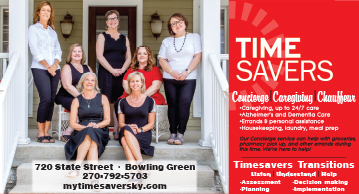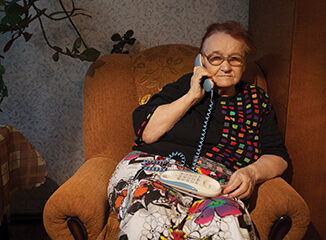
Things can really be rolling along smoothly. Parents are healthy or spouse is getting along well. As the person upon whom primary responsibility or care has fallen, you are totally cool. Then – BOOM – a fall, an infection, pneumonia, a car accident, a stroke. And as bad as those things are when they happen to someone we love, what if it happens to us? Suddenly the care hub (you) is stalled and out of commission. Are you ready? Have you considered how you would put your thoughts in motion?
Whether the need for care happens slowly and we are able to organically add the help we need at home, or whether the needs arise suddenly due to a crisis, without some level of preparation we just aren’t doing the best we can for the people we love. Exploring all of the options before they are needed, and recognizing that our very best shot at staying in our homes as long as we want comes from introducing some enhancement before a crisis necessitates it – these are the ways we relieve our own stress and anxiety about the future and smooth the road ahead for our ourselves and our families.
Did you know that family caregivers are at higher risk for heart disease, have poorer overall health, have a higher incidence of depression, and a higher mortality rate than the same age demographic in the general population? At Timesavers, we want to begin changing those statistics and outcomes. A few suggestions may help.
•Make arrangements for time to yourself. Respite is vital to health. Often, it’s that first introduction of the right helper/life enhancer that allows you the regular time slots you can grab in order to breathe and reboot. You are not neglecting any responsibility. You are sustaining the best version of yourself so when you are with your loved one, you can be wholly there.
•Get regular checkups and preventive health screenings. Statistics again – according to caregiver.org, 72% of caregivers say they have not gone to the doctor as often as they should, and 55% report missing scheduled medical appointments. Let’s go back to not wanting the primary care coordinator/caregiver to end up in the hospital themselves. Just as you arrange preventive and wellness care for your family members, you should make it a priority for yourself.
•Get a little exercise. Maybe you are in a care situation where getting out to a gym or a yoga studio isn’t realistic. Can part of a care team you’re building come into the home and do chair yoga with your parent while you go for a walk? Win-win! YouTube and other video resources can also provide you with simple workouts and routines that will increase endorphins and help you relieve stress.
•Meditate or pray. You may feel like you live inside your own head too much already. But if you have the right guidance, the right resources, the right help, the time you spend in your own head can be time of peace and contemplation rather than overwhelmed exhaustion.
Be bold. Be proactive. Be prepared. Reach out for guidance and advice and develop a roadmap that makes sense for you and your family. Know your ultimate goals. If those include remaining at home longer than you might have ever thought possible, that journey might be more realistic than you think. Educate yourself on the options, knowing the road could curve in unexpected ways, but you will be ready for what comes.
Timesavers can be a valuable resource in your preparation and movement through life’s transitions. You just have to be brave enough to begin the conversation. And we know you are exactly that – brave enough to begin.
-by Elizabeth Downing
About the Author: Elizabeth Downing is Director of Outreach for Timesavers Concierge, Caregiving & Chauffeur. A 1982 graduate of WKU, Elizabeth found her passion in advocating and providing care for older adults and those with special needs. Timesavers seeks to raise awareness of issues relating to aging and caring for aging loved ones, and works to provide the highest quality care available. Elizabeth has completed a Certificate in Care Management from Boston University, is a Teepa Snow PAC Certified Independent Consultant, and facilitates a family caregiver support group each month.




